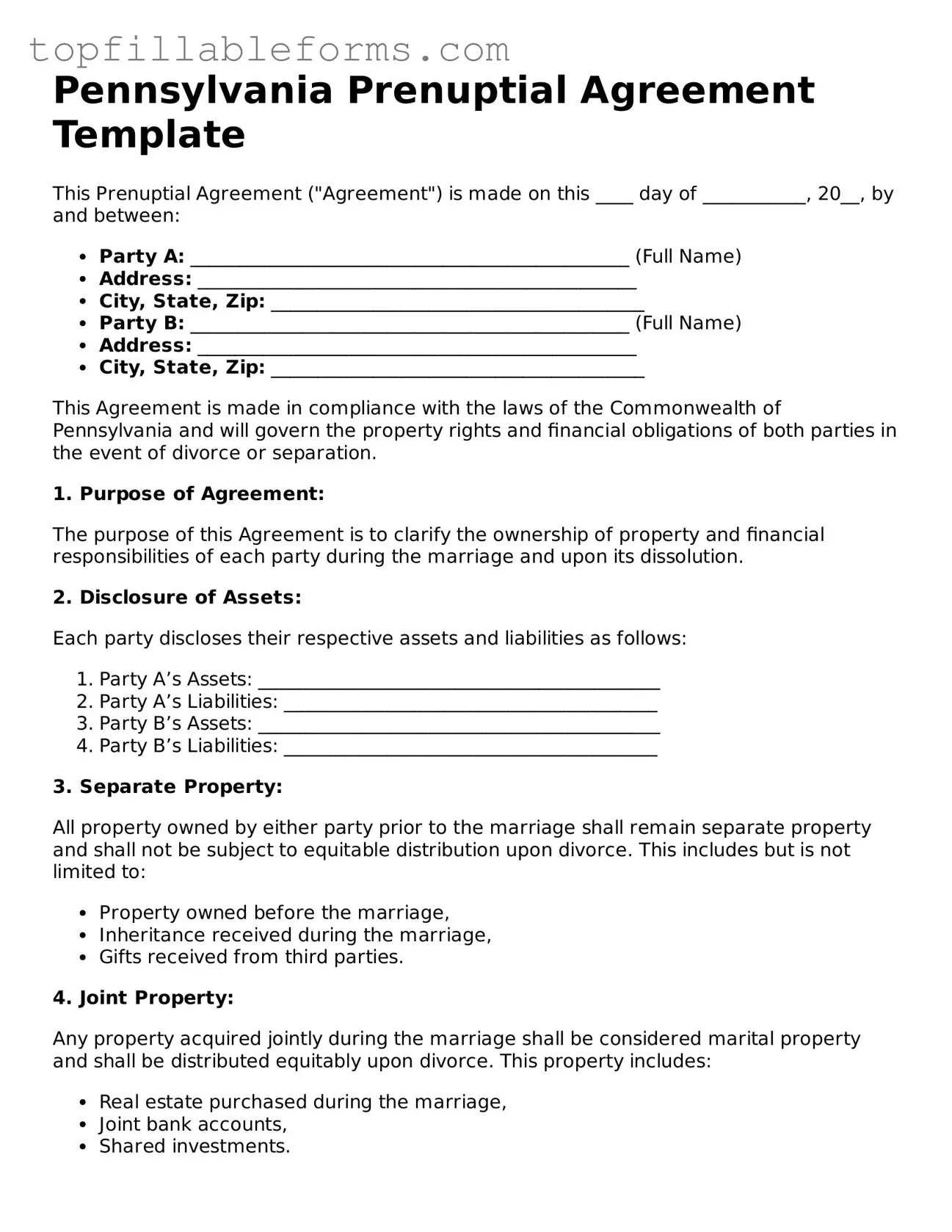Pennsylvania Prenuptial Agreement Template
This Prenuptial Agreement ("Agreement") is made on this ____ day of ___________, 20__, by and between:
- Party A: _______________________________________________ (Full Name)
- Address: _______________________________________________
- City, State, Zip: ________________________________________
- Party B: _______________________________________________ (Full Name)
- Address: _______________________________________________
- City, State, Zip: ________________________________________
This Agreement is made in compliance with the laws of the Commonwealth of Pennsylvania and will govern the property rights and financial obligations of both parties in the event of divorce or separation.
1. Purpose of Agreement:
The purpose of this Agreement is to clarify the ownership of property and financial responsibilities of each party during the marriage and upon its dissolution.
2. Disclosure of Assets:
Each party discloses their respective assets and liabilities as follows:
- Party A’s Assets: ___________________________________________
- Party A’s Liabilities: ________________________________________
- Party B’s Assets: ___________________________________________
- Party B’s Liabilities: ________________________________________
3. Separate Property:
All property owned by either party prior to the marriage shall remain separate property and shall not be subject to equitable distribution upon divorce. This includes but is not limited to:
- Property owned before the marriage,
- Inheritance received during the marriage,
- Gifts received from third parties.
4. Joint Property:
Any property acquired jointly during the marriage shall be considered marital property and shall be distributed equitably upon divorce. This property includes:
- Real estate purchased during the marriage,
- Joint bank accounts,
- Shared investments.
5. Debts:
Each party shall be responsible for their own individual debts incurred before the marriage. Joint debts incurred during the marriage shall be shared equally.
6. Amendments:
This Agreement may only be amended or revoked in writing, signed by both parties.
7. Governing Law:
This Agreement shall be governed by the laws of the Commonwealth of Pennsylvania.
IN WITNESS WHEREOF, the parties have executed this Prenuptial Agreement as of the date first written above.
- Party A Signature: ________________________________ Date: ___________
- Party B Signature: ________________________________ Date: ___________
Each party has acknowledged that they have had the opportunity to consult with independent legal counsel prior to signing this Agreement.

